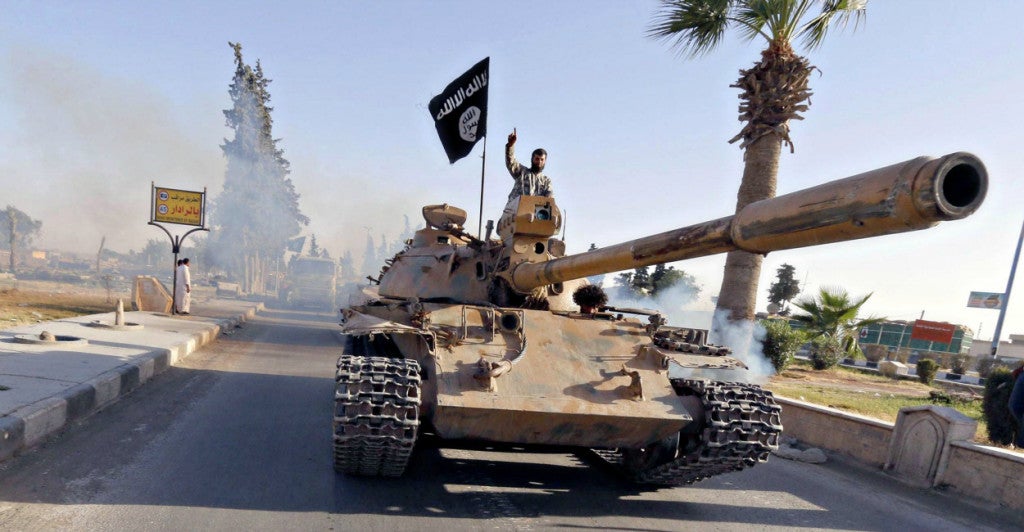For the first time, President Barack Obama will deploy a small ground force to Syria to assist the fight against ISIS terrorists there.
Though the White House is describing the move as an expansion of their current strategy to help local Syrian Arab and Kurdish forces fight ISIS, experts say the decision to send less than 50 American Special Operations forces to northern Syria represents a shift for Obama, who had been reluctant to put American ground troops in the country.
The U.S. currently has 3,500 troops in Iraq to protect American facilities and to coordinate the airstrike campaign against ISIS, also known as the Islamic State or ISIL, both inside Iraq and Syria. America has bombed ISIS targets in Syria since September 2014.
In a sign of how the White House hopes to portray the latest development as an enhancement of current strategy against ISIS in Syria, rather than a new shift in the war, Obama did not make public comments on Friday.
Instead, the White House deployed its press secretary, Josh Earnest, who said Obama’s decision is to “further intensify an element of our strategy already making an impact” and that the mission of U.S. troops is not to “lead the charge to take a hill” but to provide “some training, advising and assistance to moderate forces fighting ISIL.”
“It’s a dangerous place and they are at risk; there is no denying that,” Earnest said of the U.S. troops’ mission in Syria. “[But] these forces do not have a combat mission. The fact is our strategy hasn’t changed.”
Some experts are not so sure.
“It’s a fairly major shift to put boots on the ground in Syria,” said Michael O’Hanlon, director of research for the foreign policy program at Brookings Institution, in an interview with The Daily Signal.
“Yet in a broader sense, we have boots on the ground in lots of countries in service to the broader war on terror, so perhaps in that more regional sense it’s not a huge change. But for Syria itself, it is a very big change.”
The Obama administration is describing the more aggressive military action as not a game-changer, but as a supportive move that they hope will lead to a diplomatic and political solution to the broader four-and-a-half year Syrian war.
“The president has been quite clear that there is no military solution,” Earnest said of the Syrian war. “There is a political one.”
Secretary of State John Kerry is currently convening a meeting of diplomats in Vienna to discuss the Syrian conflict. Russia, which recently began an air campaign against rebel groups in Syria, invited Iran to participate in those talks, at the acceptance of Obama and Kerry.
Russia has said its role in Syria is to fight ISIS and other rebel groups, but U.S. officials say the Kremlin’s real mission is to to prop up President Bashar al-Assad.
Earnest tried to downplay the timing of its enhanced military role in Syria to the actions of Russia and Iran, which both support Assad.
O’Hanlon believes Obama’s shift is at least somewhat related to Russia’s aggression in Syria.
“I think it’s a combination of the failure of the broader strategy in Iraq over the last year, the challenges of creating the so-called safe zone in the north of Syria, the refugee crisis, the Russian intervention, and thus, the overall sense that we can’t pretend we’re on a successful or promising track any longer and can’t claim that the war will burn itself out without us,” O’Hanlon said.
One expert predicts Russian airstrikes in Syria could at least make the mission more difficult for the U.S. special operations forces who will now be serving there.
Until now, the U.S., like Russia, has deployed its military resources in Syria from the air.
“This will add to the already complex deconfliction problems we have,” said Steve Bucci, a foreign and national security policy expert at The Heritage Foundation. “Before it was air and air. Now it’s air and ground and that makes it that much harder.”
